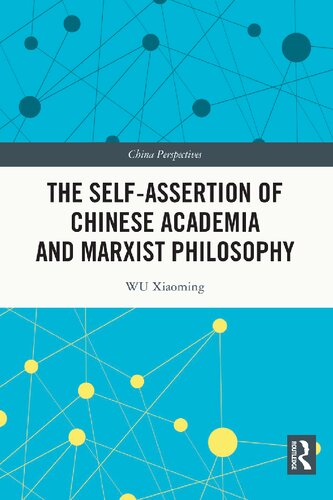

Most ebook files are in PDF format, so you can easily read them using various software such as Foxit Reader or directly on the Google Chrome browser.
Some ebook files are released by publishers in other formats such as .awz, .mobi, .epub, .fb2, etc. You may need to install specific software to read these formats on mobile/PC, such as Calibre.
Please read the tutorial at this link: https://ebookbell.com/faq
We offer FREE conversion to the popular formats you request; however, this may take some time. Therefore, right after payment, please email us, and we will try to provide the service as quickly as possible.
For some exceptional file formats or broken links (if any), please refrain from opening any disputes. Instead, email us first, and we will try to assist within a maximum of 6 hours.
EbookBell Team

5.0
70 reviewsFrom a Marxist philosophical perspective, this collection of essays investigates the maturing self-consciousness and self-assertion of Chinese academia, especially within the humanities and social sciences, permitting more penetrating insights and critical engagement with the social reality of China.
The author elaborates on the relationship between Hegel and Marx’s philosophy and their concepts of reality, thereby accounting for the historic and philosophical conditions for the autonomy of Chinese academia. Drawing on intellectual resources from both Eastern and Western archives, including phenomenology, philosophical hermeneutics, Western Marxism, and China’s pacifist tradition, the book refutes Huntington’s speculation about Chinese imperialism and delineates how China’s development can contribute to a fundamental critique of capitalist civilisation and a new paradigm of global governance. In addition, the book challenges the thinking of Chinese neo-liberals and nationalist-conservatives and their understandings of the history and social reality of China. Hence, the author advocates a reconstruction of the spiritual and intellectual realm within society based on Marxism, in order to counter Sinophobia, neo-liberalism, and nationalism at the same time.
The book will appeal to readers interested in social and political philosophy, philosophy of history, Marxism, and China studies.